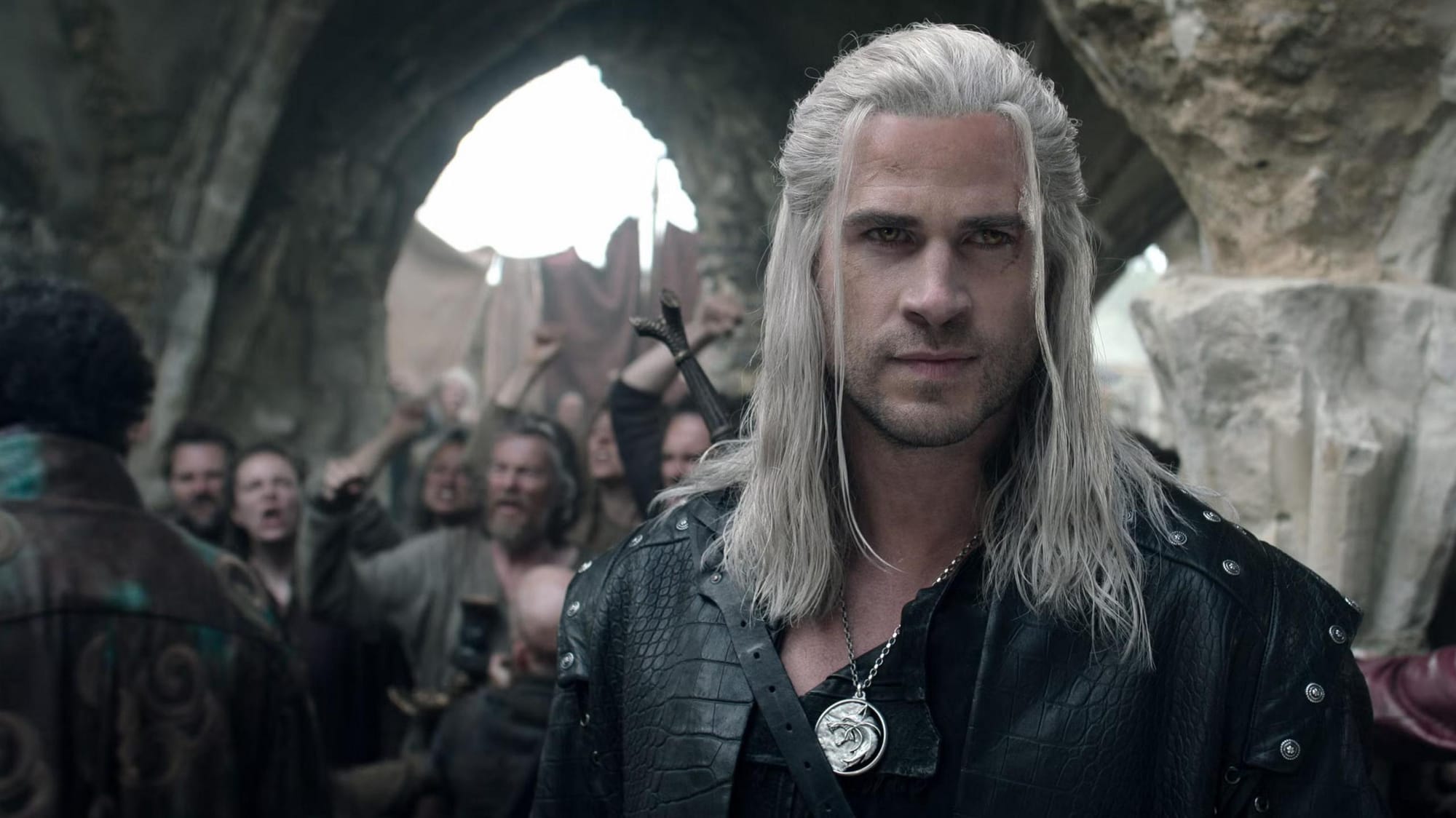The Witcher returns for its fourth season on Netflix, looking richer, louder, and strangely hollow. The world is beautiful, the monsters are terrifying, and the swords gleam in the firelight, but the heart of the show feels buried somewhere under all that polish. It is a strange experience to watch something that’s so expensive and so ambitious but feels so disorienting.

The Witcher Season 4
The Witcher Season 4 looks magnificent, but still struggles to tell a story that feels cohesive or alive. The cast works hard to fill in the gaps, and the fights are breathtaking, yet the narrative wanders without a clear purpose. Beautiful to watch, frustrating to follow.
Pros
Hemsworth fits the role better than expected
Stunning visuals and strong fight chhoreography
Freya Allan's Ciri caries emotional weight
Cons
Story lacks direction and emotional clarity
Character motivations lack consistency
More spectacle than substance
The season opens with a retelling of the Witcher’s tale through a young girl named Nimue, who narrates the story of Geralt, Yennefer, and Ciri as if reading it from a half-forgotten chronicle. It is meant to reorient us, but instead it highlights how scattered the narrative has become. We are reminded of everything that happened before, but we don't really understand how it connects to what is coming next. That has always been The Witcher’s problem. It moves beautifully, but the movement lacks rhythm.
Liam Hemsworth takes over as Geralt of Rivia, and to his credit, he fits the role better than many expected. He carries himself with quiet confidence, a little less gruff than Henry Cavill but still convincing as a man haunted by his work.
He can fight, brood, and deliver a line with weary understatement. The trouble is that Geralt no longer feels central to his own story. The writing keeps him in motion, walking from one grim encounter to the next, but rarely gives him agency. He exists as a reaction to the world around him rather than as an anchor within it.
The early episodes follow Geralt, Jaskier, and Milva through a scarred countryside filled with ruins, undead creatures, and people too desperate to care who is killing whom. The trio makes for a lively group. Milva is quick and sharp, Jaskier remains the moral compass, and Geralt mostly glowers while saving everyone’s life. These moments of banter and frustration are the closest the show gets to feeling human.
When they meet Regis, a vampire who hides his past behind kindness, the story briefly finds shape. Regis’s confession about his violent history and self-imposed exile carries more emotional weight than most of the season’s grand battles combined. For a few minutes, the show remembers that the world of The Witcher is supposed to be tragic, not merely busy.

Yennefer’s storyline unfolds elsewhere, and it feels like a different show altogether. She is travelling across the Continent trying to rally mages against Vilgefortz, a former ally turned tyrant. Her portals keep glitching, her plans keep failing, and her leadership seems to come from exhaustion more than conviction.
Anya Chalotra is still captivating, but Yennefer’s purpose keeps shifting. Once, she was driven by love and ambition. Now she feels caught in a loop of political speeches and magical errands that lack emotional follow-through.
Ciri’s arc, on the other hand, is the one thread that still feels alive. Hiding under the name Falka, she runs with a gang of reckless outlaws called the Rats. Her story has energy because it is about survival rather than prophecy. Freya Allan brings a mix of fragility and ferocity that keeps Ciri grounded.
Her choices make sense even when they are reckless. She is growing harder, meaner, and more sure of her strength, but she has not lost her humanity. When she fights, it feels personal. When she hesitates, it feels earned. In a show obsessed with destiny, Ciri is the only one who still behaves like she has free will.
The production value this time is extraordinary. Every episode looks cinematic. The forests shimmer, the armour glints, and the creatures are rendered with unsettling realism. A midseason battle in a ruined chapel might be the series’ most thrilling sequence so far. The camera tracks every blow, the sound design crunches with impact, and, for once, the action feels weighty rather than ornamental. If you only care about sword fights and spectacle, Season 4 delivers in full.
What it lacks is orientation. The story never finds a clean path forward. Scenes follow one another without a clear sense of distance or purpose, like flipping through a beautifully drawn map with no legend.
The show has tried to fix the messy timelines that confused everyone in Season 1, but in doing so, it has flattened the texture. Everything happens in a straight line now, yet it somehow feels harder to follow. There is no flow to the world, no sense of how one event connects to the next. You spend entire episodes wondering where these people are, why they are there, and what they think they are trying to achieve.

That lack of clarity extends to character motivation. Geralt’s goals shift from episode to episode. Yennefer speaks like a politician but never explains why her war matters beyond obligation. Even supporting players seem to appear purely because the show remembers them. When the mages finally face off against Vilgefortz in a chaotic final battle, it looks incredible, but the stakes feel distant. You understand what is happening, but you do not feel why.
Still, credit where it is due: the performances hold the series together. Hemsworth has the right presence, even when the story sidelines him. Chalotra continues to elevate thin material with sheer intensity. Allan is phenomenal as Ciri, grounding the chaos with emotion that feels raw and believable. Joey Batey’s Jaskier remains the closest thing this series has to warmth. He makes cynicism sound like poetry and grief sound like gossip. Even brief appearances, like Laurence Fishburne’s dignified guest role, add a depth that the script itself struggles to provide.
By the final two episodes, the pieces begin to converge. Yennefer gathers her forces, Ciri faces the consequences of her false identity, and Geralt joins a war that feels more symbolic than strategic. There are monsters, betrayals, and moments of striking beauty, but the resolution feels oddly weightless. The show ends on a promise of more to come rather than the satisfaction of what has been told.
The Witcher was never known for tidy storytelling, but its chaos once had charm. It used to feel like a world brimming with history, even if you did not understand every detail. Now it feels like a world that is constantly explaining itself but never revealing anything worth knowing. The lore keeps expanding, the stakes keep rising, yet the emotional connection keeps fading.







